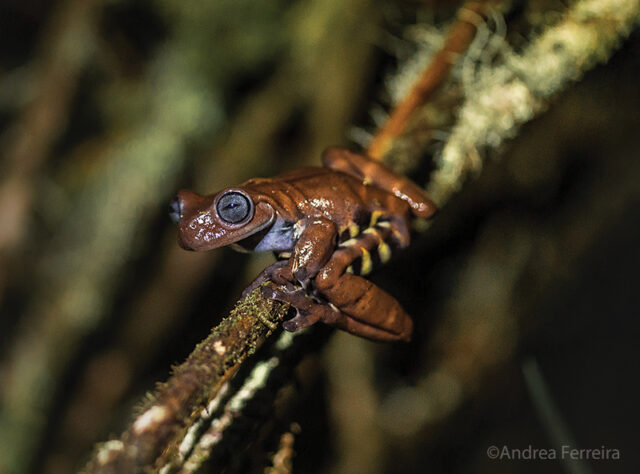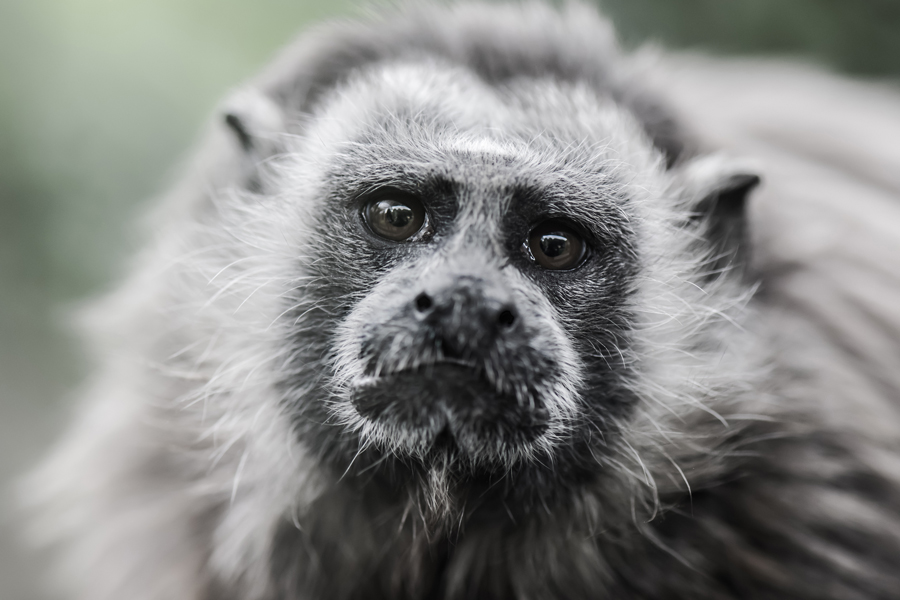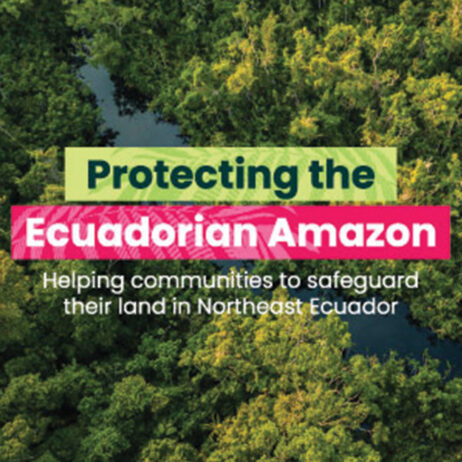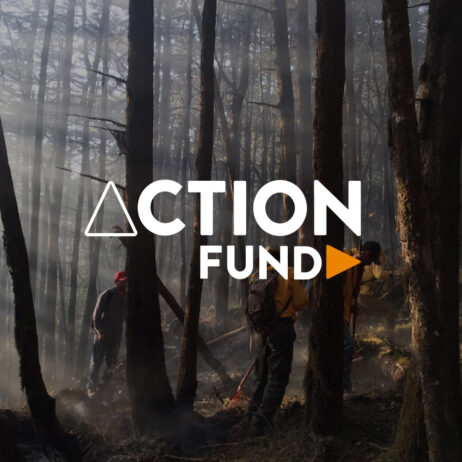
The Antioquia Chocolate Frog was discovered in the Colombian Andes in 2010. WLT's 2023 'Forests of Mist Appeal' secured vital habitat for this endemic and vulnerable species . Photo: ©Andrea Ferreira
By Dr Catherine Barnard, World Land Trust CEO
This week delegations from countries around the world head into the sixteenth Conference of the Parties to the United Nations Convention on Biological Diversity (CBD COP16). The conference is being held this year in Cali, Colombia, which is significant as it places emphasis on the country’s global role as a biodiversity hotspot. World Land Trust (WLT) has supported many projects in Colombia over the years and I hope that COP16 will platform the impressive regional and local conservation efforts that WLT are so familiar with to the wider global community. Equally, in Colombia Indigenous groups have been pivotal in managing biodiverse regions, including parts of the Amazon. Ensuring that their voices are amplified at COP16 will help to underscore their indispensable role in safeguarding both cultural heritage and natural ecosystems. The focus on Indigenous rights also draws much needed attention to the environmental justice aspect of biodiversity conservation, where marginalised communities are disproportionately affected by the destruction of nature and climate change and must be fully involved with implementing solutions to these interlinked crises.
However, in the time leading up to the conference itself, it has become painfully clear that governments are simply not doing enough. Unfortunately, it is an all-too-familiar situation that we find ourselves in. CBD exists as a global agreement to safeguard biodiversity and ‘live in harmony with nature’ yet time and again, the world’s leaders fail to meet global biodiversity targets that they themselves agreed. COP10’s Aichi Biodiversity Targets included 20 specific goals aimed at conserving ecosystems, species, and genetic diversity but, despite being a landmark framework, we missed every single target at the 2020 deadline. Now, unless countries significantly raise their game, the outlook for the goal to protect 30% of the world’s land and marine areas by 2030 — the 30×30 target — looks equally bleak. As of October 2024, more than 85% of countries missed the UN deadline to submit their nature action pledges. This is simply unacceptable when we are facing such an unprecedented crisis.

White-footed Tamarin – Colombia. Credit: David Antonio Lopez Moya/Shutterstock
It becomes even more alarming when you consider the findings from the WWF Living Planet Report 2024. The report shows an average decline of over 73% in vertebrate populations during my lifetime. That is nothing short of staggering, and somewhat terrifying. Entire species are disappearing before our eyes, and yet, the political will to stop this mass extinction is simply not there. This takes me back to what I always say — we need systemic change that fully recognises and values the role of nature. All political leaders must place the environment, which underpins our social and economic wellbeing, at the heart of their decision-making. We need them to up their game, and fast, before it is too late for some of the incredible species we share this planet with.
But, despite these grim facts, I remain optimistic. Why? Because I know that collective action works. We have seen it firsthand at WLT through the dedicated work of our conservation partners across the world, and in the high-biodiversity countries in tropical regions in particular, and through our supporters who help make this work a reality. Protecting land saves species, and it also supports local communities to improve their lives. By accelerating the power of collective action, we can create viable places for wildlife and people to thrive. This will give species hope for the future, even as we push politicians to finally catch up.
The road to COP16 is one of urgency, but also of opportunity. Let’s ensure that this time, we get the job done — for wildlife, for people, and for our planet.

